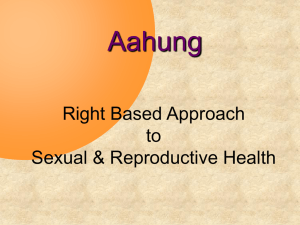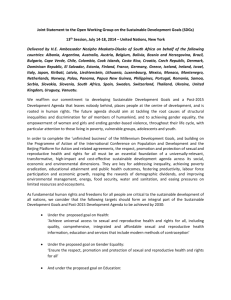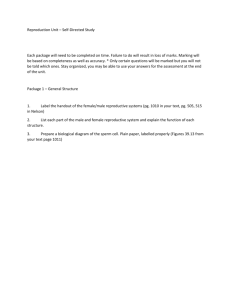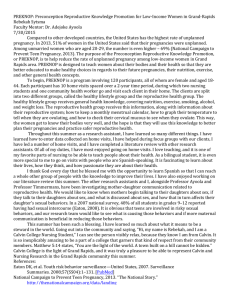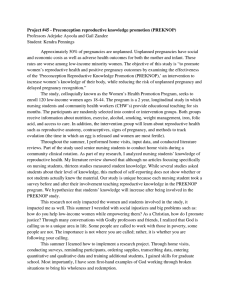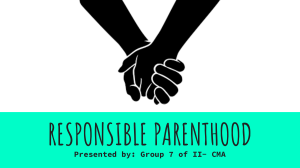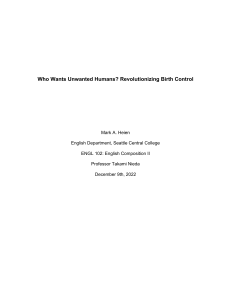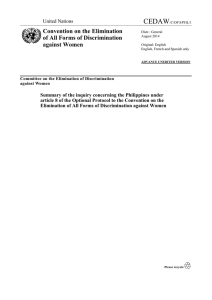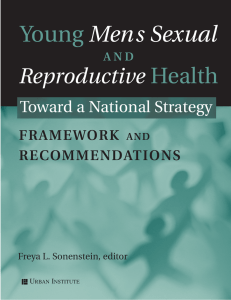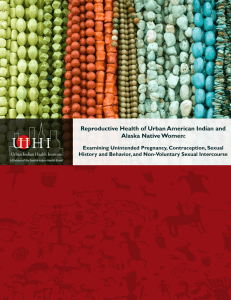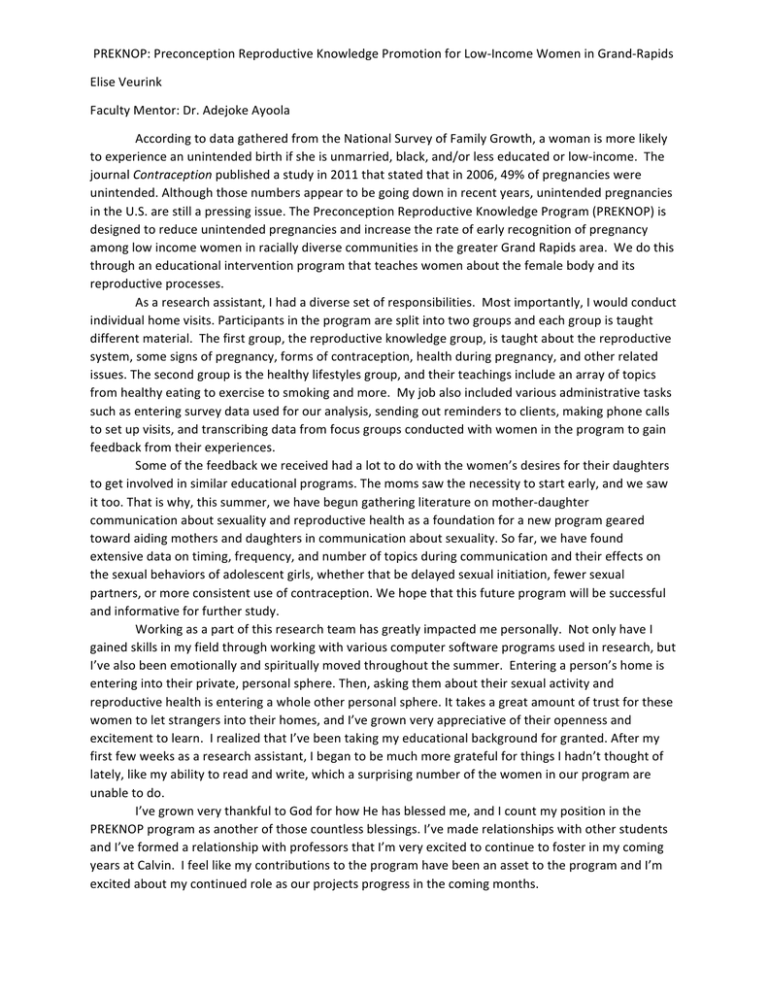
PREKNOP: Preconception Reproductive Knowledge Promotion for Low-­‐Income Women in Grand-­‐Rapids Elise Veurink Faculty Mentor: Dr. Adejoke Ayoola According to data gathered from the National Survey of Family Growth, a woman is more likely to experience an unintended birth if she is unmarried, black, and/or less educated or low-­‐income. The journal Contraception published a study in 2011 that stated that in 2006, 49% of pregnancies were unintended. Although those numbers appear to be going down in recent years, unintended pregnancies in the U.S. are still a pressing issue. The Preconception Reproductive Knowledge Program (PREKNOP) is designed to reduce unintended pregnancies and increase the rate of early recognition of pregnancy among low income women in racially diverse communities in the greater Grand Rapids area. We do this through an educational intervention program that teaches women about the female body and its reproductive processes. As a research assistant, I had a diverse set of responsibilities. Most importantly, I would conduct individual home visits. Participants in the program are split into two groups and each group is taught different material. The first group, the reproductive knowledge group, is taught about the reproductive system, some signs of pregnancy, forms of contraception, health during pregnancy, and other related issues. The second group is the healthy lifestyles group, and their teachings include an array of topics from healthy eating to exercise to smoking and more. My job also included various administrative tasks such as entering survey data used for our analysis, sending out reminders to clients, making phone calls to set up visits, and transcribing data from focus groups conducted with women in the program to gain feedback from their experiences. Some of the feedback we received had a lot to do with the women’s desires for their daughters to get involved in similar educational programs. The moms saw the necessity to start early, and we saw it too. That is why, this summer, we have begun gathering literature on mother-­‐daughter communication about sexuality and reproductive health as a foundation for a new program geared toward aiding mothers and daughters in communication about sexuality. So far, we have found extensive data on timing, frequency, and number of topics during communication and their effects on the sexual behaviors of adolescent girls, whether that be delayed sexual initiation, fewer sexual partners, or more consistent use of contraception. We hope that this future program will be successful and informative for further study. Working as a part of this research team has greatly impacted me personally. Not only have I gained skills in my field through working with various computer software programs used in research, but I’ve also been emotionally and spiritually moved throughout the summer. Entering a person’s home is entering into their private, personal sphere. Then, asking them about their sexual activity and reproductive health is entering a whole other personal sphere. It takes a great amount of trust for these women to let strangers into their homes, and I’ve grown very appreciative of their openness and excitement to learn. I realized that I’ve been taking my educational background for granted. After my first few weeks as a research assistant, I began to be much more grateful for things I hadn’t thought of lately, like my ability to read and write, which a surprising number of the women in our program are unable to do. I’ve grown very thankful to God for how He has blessed me, and I count my position in the PREKNOP program as another of those countless blessings. I’ve made relationships with other students and I’ve formed a relationship with professors that I’m very excited to continue to foster in my coming years at Calvin. I feel like my contributions to the program have been an asset to the program and I’m excited about my continued role as our projects progress in the coming months.

